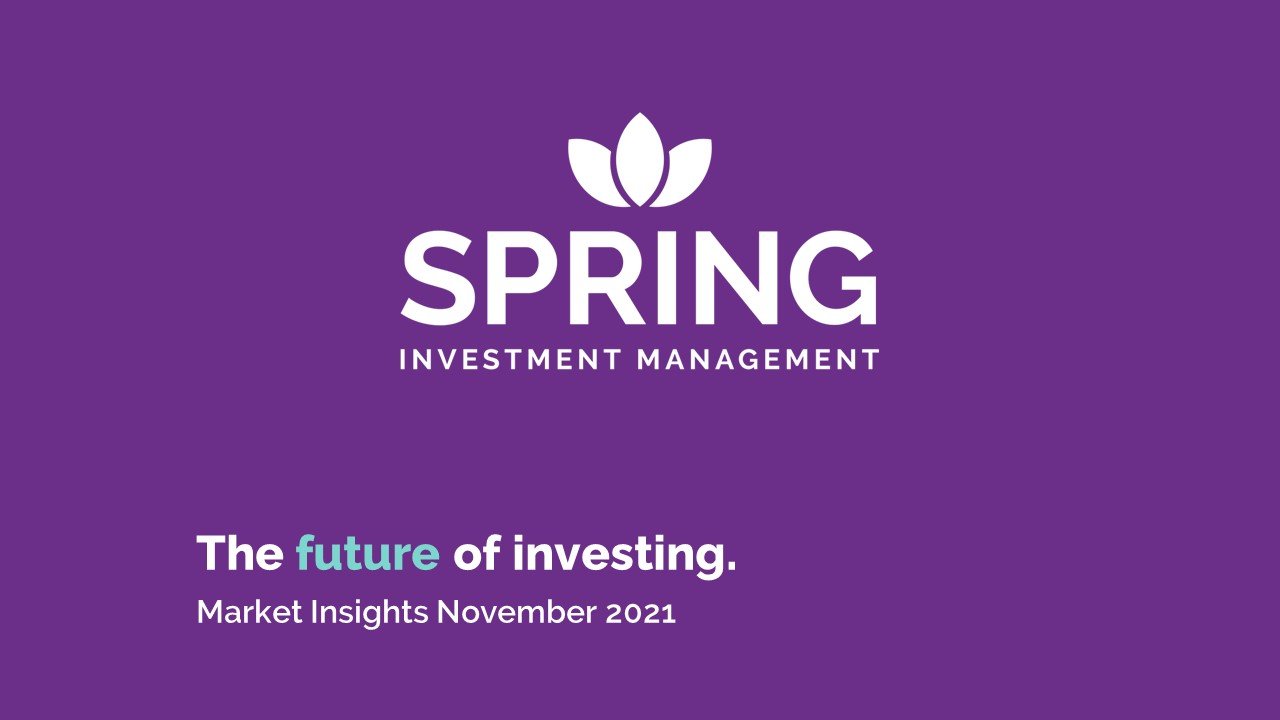February Commentary
The BoE decided to keep rates unchanged despite market expectations. This delay in implementation was not sufficient to counteract the negative impact of the new variant, which was particularly felt in small caps and sectors such as airlines. UK CPI reached 4.2%, as the shortage of goods & services and staff continue to push prices higher…
January insight - Managing Inflation?
It may be too early to tell how the Omicron variant of COVID-19 will affect the Bank of England’s decision to raise interest rates. Despite their initial concern, the Bank decided to increase rates in December and, with market expectations appearing to reflect a belief that the current inflationary environment is not transitory, further increases may be on the way.
So when it comes to preparing your portfolio for inflation, what should you do?
December Commentary
The BoE decided to keep rates unchanged despite market expectations. This delay in implementation was not sufficient to counteract the negative impact of the new variant, which was particularly felt in small caps and sectors such as airlines. UK CPI reached 4.2%, as the shortage of goods & services and staff continue to push prices higher…
November insight - When is defensive not defensive?
Each market correction is different, and not all volatility is the same. There are times, like the COVID crisis, where bonds and equities fall at the same time. On other occasions, bonds can provide diversification against a falling equity market. During the initial drawdown at the end of January, bonds remained relatively stable when equities fell, providing some insulation for 60/40 portfolios. However, in the drawdown at the end of February, bonds fell in line with equities, pushing the drawdown for 60/40 portfolios to be closer to that of equities, and not what one might expect from a “balanced” portfolio.
November Commentary
After several month of leadership by the mid-cap section of the UK market, the large-cap FTSE 100 rose strongly, to dominate UK returns. Continued rises in the price of Brent Crude boosted oil shares – a big component of the FTSE 100, whilst, elsewhere…
October insight - Mind the gap - the risk to your portfolio
The recent collapse of a number of energy companies demonstrates the perils, for the most part, of concentrating too much attention on just one aspect of an investment decision – the cost. With regards to investing, this incident highlights the important consequence of not assessing all inherent risks in making an investment decision and, by extension, managing a portfolio. In our unending pursuit of higher returns, whether that’s through low-cost passive products, or investing in technology stocks, have we been ignoring these risks too long? Is now the time to balance risk with returns?
October Commentary
UK equity market was weak as supply chain disruptions led to chip shortages and a brewing energy crisis fanned investor concerns. Strong performances from the major oil companies were not enough to offset the weakness in the mid-caps, in particular travel stocks…
September Commentary
UK equities were led, once again, by the FTSE Mid-250 Index, despite Sterling weakness during the month. After July’s +2.5% return, driven by travel stocks, August saw the Index add a further 5%, driven primarily by bid-speculation, following a bidding war for aerospace supplier, Meggitt…
August Commentary
UK equities rose just slightly in July, but the strength of Sterling against the US Dollar and Euro meant large cap stocks with overseas earnings performed poorly, suppressing the main index. It was a volatile month, and markets sold off in the first part of the month due to the spread of the delta variant spread and the slowing growth outlook…










